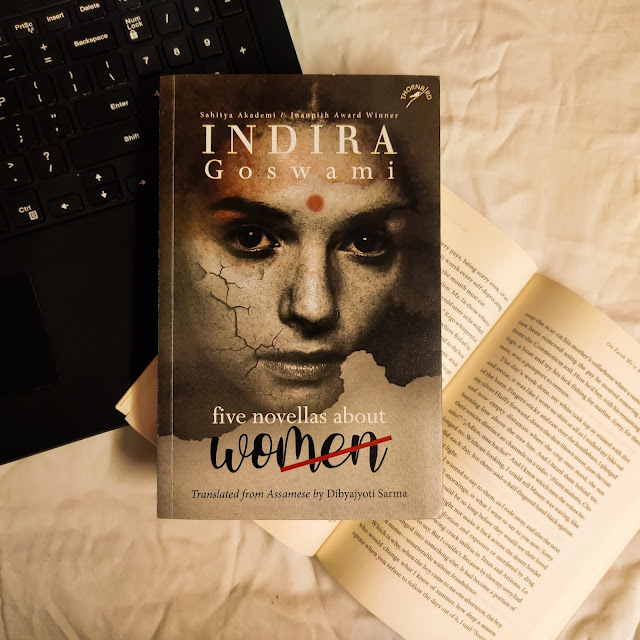Book Review 113: Five Novellas about Women by Indira Goswami, translated by Dibyajyoti Sarma
The stories mainly focus on the plight of women. Women - marginalised, and oppressed by the society. The author portrays the lives of the rural poor, the plight of the urban underclass, and how the powerless are treated. Issues like widowhood, and female sexuality are prominent themes of her stories.
The stories are a raw representation of the harsh realities and deftly addresses the issues the women face.
Each of the stories shakes the readers to the very core. Most of the stories set in the North-Eastern state of Assam, transports the readers to a different world altogether. The brilliant writing style further makes the book an engrossing read.
Five Novellas about Women by Indira Goswami, translated by Dibyajyoti Sarma is an important read, a must-read for everyone.
About the author: Indira Goswami was an Indian author known by her pen name Mamoni Raisom Goswami and popularly as Mamoni Baideo
She was the winner of the Sahitya Akademi Award (1983), the Jnanpith Award (2001) and Principal Prince Claus Laureate (2008). A celebrated writer of contemporary Indian literature, many of her works have been translated into English from her native Assamese which include The Moth Eaten Howdah of the Tusker, Pages Stained With Blood and The Man from Chinnamasta.
My rating: 5 of 5 stars.
First Published: 2021
Pages: 254
Price: ₹495
You can buy this book from Amazon.
Thanks to the publisher, Niyogi Books, for providing me with a review copy of the book in exchange for an honest review.




Fantastic review!
ReplyDelete